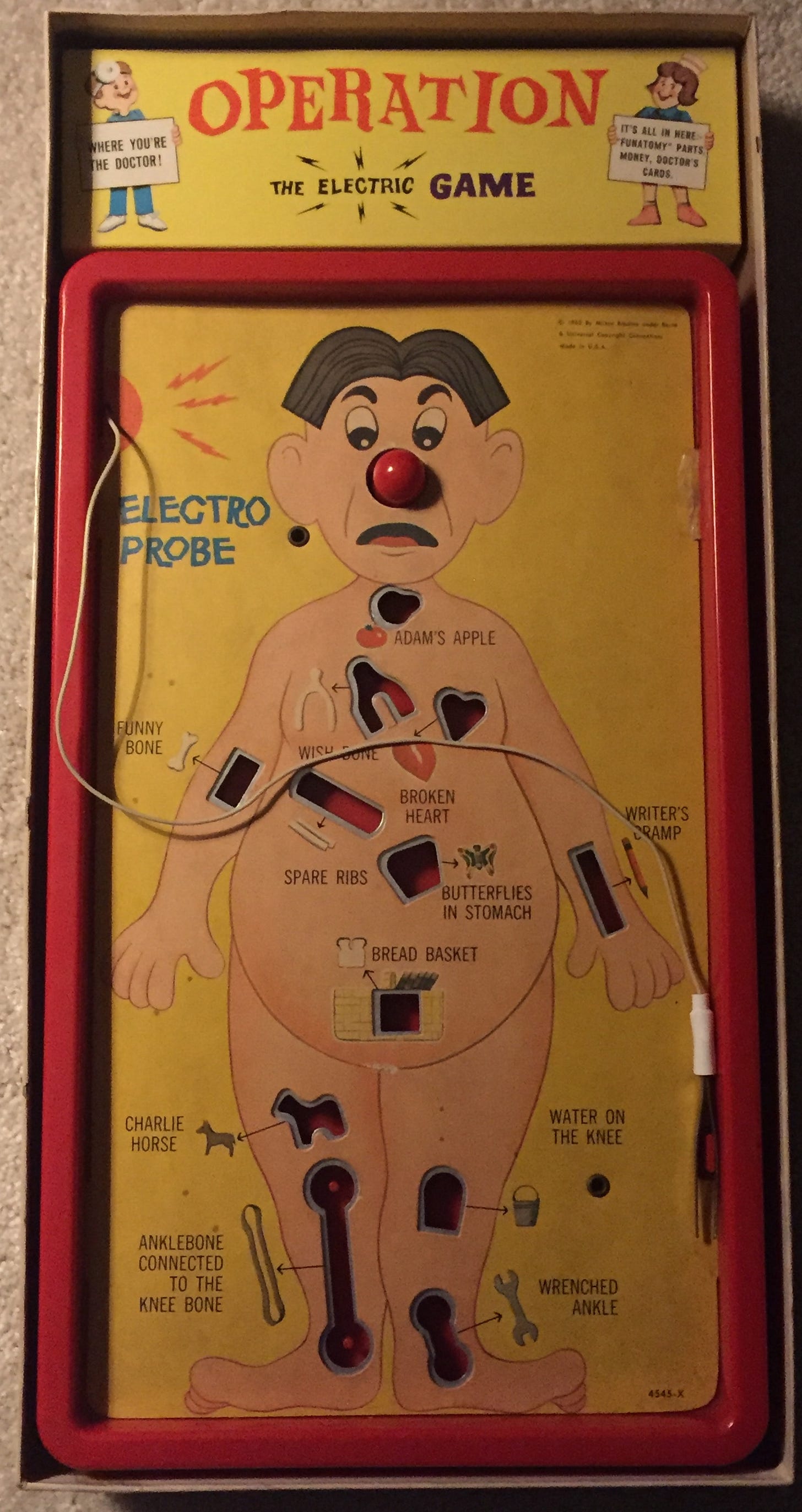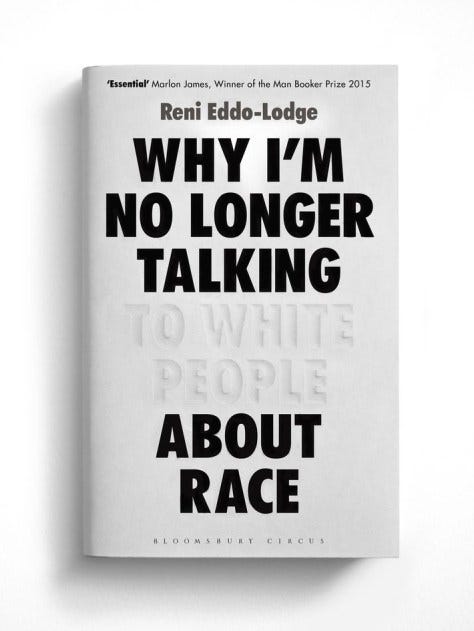But this morning I am sore, and moving around without the prescription pain medication is proving to be a challenge. It’s a strange victory, also, to feel pain and know I can cope with it without chemical assistance now. But the exhaustion will set in at some point, and that little voice in my head will say (very convincingly) that if I had only taken that little dry pill, I’d feel less of this.
It would be nice to relate to others over my experience. And I could. I could even say here that “I had XXX procedure done recently,” and I know that someone out there would read it and instantly understand what my body is going through, how it’s affecting my mental state.
There is, however, a significant problem with me divulging this information. This is because I am out as a trans person. And we all know the narrative. Trans people have surgeries.
Never mind that everyone should be able to expect a reasonable amount of privacy about their personal lives, not the least of which should include their health and physical well-being. But let’s get real. As a cis person, someone can say, “I’m having surgery next week,” and those around them will all say, “What kind?” and, “I hope you’ll feel better soon,” or, “Let me know if you need anything.”
What do I say as a trans person?
“I’m having surgery.”
“Oh. So… Are you getting something added on?”
“What are they removing?”
“How is your wife handling this?”
“Do you feel like you were born in the wrong body?”
“Trans surgeries are mutilation.”
No matter how the conversation begins, there are several assumptions.
Whatever surgery I need MUST be related to trans healthcare. After all, trans people don’t have any other kind of medical needs.1
It’s perfectly okay to talk openly (and invasively) about these assumed medical procedures with (and about) a trans person.2
No matter how little you know about gender affirming care, trans people want to hear your opinions.3
Let’s back up. In the early moments of coming out as a transgender human, I started looking at information on top surgery. It was instantly appealing (and desperately necessary for me)4. At that point in my history, I was also very new at this whole “being trans thing,” and so I didn’t think anything of it when I came out to friends and colleagues and they all asked (in one form or another), “Are you getting the surgery?” My answer was simple. “Yes, I’m looking into top surgery.”
But that conversational theme kept happening, even with people I wasn’t that well-acquainted with. And the things discussed were tremendously personal.
“Aren’t you worried you’ll regret it?”
“But you looked so good in your wedding dress. You’ve got a great body.”
“What happens to sensation? And sex? Does it change everything?”
“Those scars are going to be huge. Won’t you feel embarrassed?”
“I’ve seen transmen’s chests. They don’t look like normal chests.”
Little by little, I started taking these hits, like physical trauma, as though I had asked for them by virtue of telling people what I wanted and was doing with my life and my body. I was being open and honest, and that vulnerability was something for others to grab onto and take advantage of. Most did it without even realizing the harm they were creating. And if I brought that up, I was met with immediate defensiveness.
“I’m only asking because I care.”
“I’ve known you this way for so long. I’m adjusting.”
“I’m curious. Who else am I supposed to ask?”
Right. It was my fault. I’d come out, and they hadn’t rejected me, so I owed them something for their acceptance.
Let that sink in for a beat.
I owed my friends and family and coworkers my openness and vulnerability because they had not outright rejected me, not because they had proven themselves to be worthy by caring or demonstrating that they would not hurt me, through intention or ignorance.
A lot of my early emotions about being transgender fell into the mythology of transness, this bizarre cultural contract that there was only one way the narrative around “being trans” could go. I was just as stuck in it as the people around me. Simply put, I did not know that I had the option NOT to disclose private information about my body.
This is silly. Of course we’re all entitled to that kind of privacy. But when we go back to our inherent understanding of transness, this is one item that’s not true for trans people. Our bodies, our experiences, our very lives, are the subject of heated conversation and debate all over the world. So any expectation of confidentiality is immediately met with pushback.
Prior to having this most recent medical procedure done, I contemplated all of this, and I decided, out loud, to omit as much information about it as possible to everyone around me who DIDN’T need to know.
The response to that strategy was astonishing.
For those who knew I was going to be out of work for a bit, the inquiries were immediate. And I cut them off by simply saying, “I don’t like this assumed script that my medical chart is open for the whole damn world to read.”
My coworkers (who are also good friends) were pissed. They argued with me. “I deserve to know,” they said. And that was the last time I explained to anyone that I wasn’t talking to them about surgery anymore.
I recently finished Reni Eddo-Lodge’s Why I’m No Longer Talking to White People About Race, which I highly recommend5, and the parallels are astounding. There are so many places where race could be replaced with gender, and the information would still be relevant. But specifically, as a trans person I find that discussing surgeries or hormones or physical health at all is just a one-way dead-end street of nothing-good-will-come-of-this. It breaks down into two distinct problems: information privilege and othering.
Information privilege is this broad assumption that anything having to do with my body is your business. It’s not. Women’s rights and abortion deal with this stigma constantly. But as a transgender person (and heaven help you if you’re under 18), there is absolutely no respite from this need for others to know YOUR private information. And it isn’t just about casual conversations. This is coming up in state-level legislation all across the United States. It’s embedded in the invasive nature of forms for kids enrolling in public school sports programs. It’s the core premise of the gate-keeping associated with access to hormones and gender affirming surgery, and as trans people we simply cannot escape it no matter where we go.
The impact of it is othering. When we are talked about, we are frequently made to feel as though we are “others,” not belonging, not part of something. It’s objectification at its finest.
Who else do you treat this way when you know they’re going in for a medical procedure?
F*cking nobody, that’s who. Why else would my body be on your voter ballot?
Ironically (not in a laughable way), my desire for an inch of privacy cuts off those who could really benefit from me talking about the medical procedures I’ve been through. I could normalize these things for everyone. I could be a resource for trans or questioning folks who need to find community and connect with people who can help them. And so my own confidentiality bears a cost to myself and my trans and nonbinary peers. How is that fair to any of us?
And personally, I’m losing out on support. I’m missing the ability to talk to others, to get feedback on how best to recover and not set myself back with the wrong activities. I can’t expect my coworkers to give me some slack when I start back to work, and my list of people I can lean on when I encounter post-op depression is thin.
We are all losing out on the normalness of doing things to feel whole, to feel good about ourselves, to celebrate our bodies and the marvels of science and medicine to improve our lives.
Most importantly, NOT talking about these things deprives you of seeing me as someone who experiences joy and happiness. I’m not sad about my decision to get this procedure done. I’m not dragged down at the prospect of regret. I’m relieved. I’m elated. And I wish so deeply that I could tell you why.
It could’ve just been a tonsillectomy and you’d never know!
But I am a transman who just had surgery. Where does that make your mind go?
Your trans friend,
Robin
Oh, thank goodness.
That’s the point of this article. Please don’t.
Still, no.
In fact, if someone had told me years ago that I could have this done – even without explaining anything at all about transgender identities – I would have said hell yes and never looked back.
Yes, please, do go grab a copy of this book from your local bookstore or library. While it’s largely written from the perspective of someone who lives in the UK, it still highlights so many of the problems with systemic racism, and it does so with a generous history lesson to boot.






